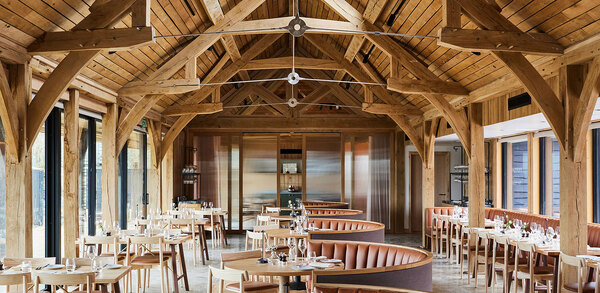BHA round-up: Not so cosy as it seems
The ‘home-sharing economy' has a cottage industry image at odds with the reality of fully fledged businesses dodging their dues, says Ufi Ibrahim
What started out as a great idea â" someone renting out a spare sofa in San Francisco and using the internet to do it â" has become a classic example of what happens when a disruptive technology is not fully understood by governments and is allowed to get out of hand.
And calling it the âhome-sharing economyâ is not particularly accurate. Research by Colliers shows that over 50% of Airbnb lets in London are offered by hosts with more than one letting unit listed on the site â" which suggests they are fully fledged businesses rather than individuals allowing someone to stay in their spare room. Itâs a suspicion backed up, in London at least, by the appearance of multiple adverts for Airbnb management companies on tubes, trains and buses.
Donât get me wrong. The sharing economy is wonderful â" as long as that is what it is. But when companies, knowing no boundaries, get greedy, then the public will start to get annoyed. And it all leaves our members at an unfair disadvantage.
Fairâs fair
The BHA is extremely aware of the concerns of our members, whether they be big hotel organisations or B&B owners across the UK, that Airbnb is operating under a different set of rules to them. This has to stop. We need a level playing field so that existing businesses are not disadvantaged. I am loath to use the word âtraditionalâ because that suggests we are old-fashioned. The truth is that we are modern but we agree to abide by regulations that protect our customers.
Everyone should have to pay their taxes. Letâs look at a specific example. Tower Hamlets Council last month decided to refuse a planning application to turn a flat into a short-term letting. The BHA wrote to the council pointing out that home-sharing networks can be a socially positive tool for home owners in London, renting out a room or their home while theyâre on holiday.
But we also stressed that as home-sharing platforms do not provide data to local authorities, a large hidden economy has developed.
Itâs an economy where hosts cannot be identified, planning and safety laws are  unenforceable, and professional landlords are able to circumvent tax, planning, food, health and fire safety regulations.
We pointed out that last year more than 4.6 million nights were booked in Airbnb accommodation in London, and that nearly 50% of overnight stays in Tower Hamlets took place in Airbnb properties. Londonâs economy depends on a vibrant hospitality and tourism industry, but the 400,000 employees who make up our industry in London increasingly find themselves unable to secure affordable and suitable accommodation.
London is now one of the only cities in the world where short-term lettings are unregulated.
New York, San Francisco, LA, Berlin, Brussels, Amsterdam, Paris, Barcelona and many others have taken action to ensure that short-term lettings are properly regulated so that the economic benefits are not outweighed by social dislocation, especially the erosion of communities in city centres.
The BHA has campaigned successfully for home-sharing platforms to block hosts from letting rooms out for more than 90 days in London, but more needs to be done. Letâs all play by the same rules.
Ufi Ibrahim is chief executive of the British Hospitality Association
Join the BHA and receive a subscription to The Caterer
All new BHA members receive an annual subscription to The Caterer worth £139 and also get reduced rates for conferences and awards, in addition to all the savings and services that form the BHAâs membership proposition.
To sign up for this exclusive offer and BHA membership, go to www.bha.org.uk/join














